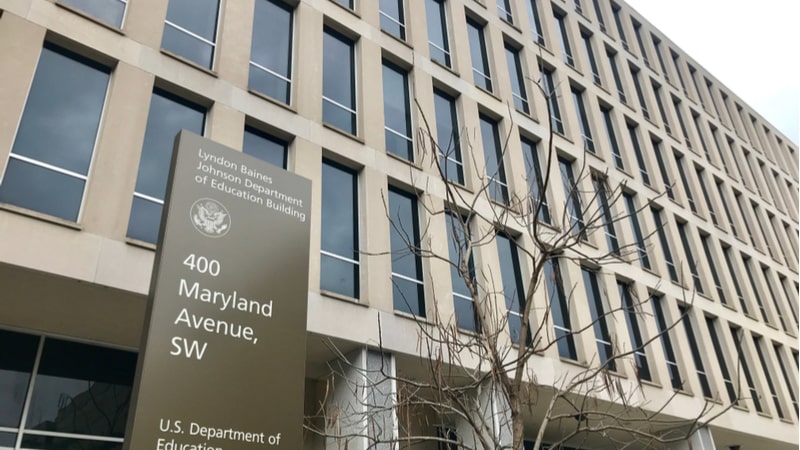
The Department of Education has launched an outreach campaign to alert K-12 and higher education students that they are eligible for a monthly discount on broadband internet service.
The Department of Education said the discount, which comes from the Federal Communications Commission’s (FCC) Emergency Broadband Benefit (EBB) program, will impact millions of students nationwide. The campaign will target families with children participating in the free or reduced-price lunch or school breakfast program, and 6.5 million Pell Grant recipients to alert them that they are now eligible for the discount of up to $50 per month. Eligible households on qualifying tribal lands can receive a discount of up to $75 per month.
“The COVID-19 pandemic has magnified issues of internet access and affordability for both K-12 students and college students, particularly students of color, students in rural or tribal communities, and students from low-income families,” said U.S. Secretary of Education Miguel Cardona. “This campaign will not only keep more of America’s students connected and learning, but will help address inequities exacerbated by COVID-19. As we recover from the pandemic, we have an opportunity to rebuild our education system back better than it was before, and providing reliable, affordable internet access to more students disproportionately impacted by the pandemic is one way we can make sure all students are set up for success.”
The program provides a discount on both broadband service and needed equipment, such as a modem. Participating households may also receive a one-time discount of up to $100 for one connected device – a laptop, desktop, or tablet computer – where available from a participating broadband provider. To receive the discount, the household must contribute between $10 and $50 towards the cost of the device.
“It’s more apparent than ever that broadband is no longer nice-to-have. It’s need-to-have. For everyone, everywhere,” said acting FCC Chairwoman Jessica Rosenworcel. “Seemingly overnight, the COVID-19 pandemic required millions of families and students to shift to remote learning. These students, their families, and their teachers worked hard to make remote learning a reality. But this crisis highlighted like never before that the virtual classroom was closed to millions of students without reliable internet access at home – with students of color and low-income families hit the hardest. And that’s simply unacceptable.”
In addition to reaching out to students and their families directly, the Education Department is also reaching out to schools and districts participating in the Department of Agriculture’s Community Eligibility Provision to inform them that their students may be eligible for the program and provide information on how to apply. The department is working with the FCC to develop materials to help schools, districts, and postsecondary schools share information about the program to eligible students and families.
